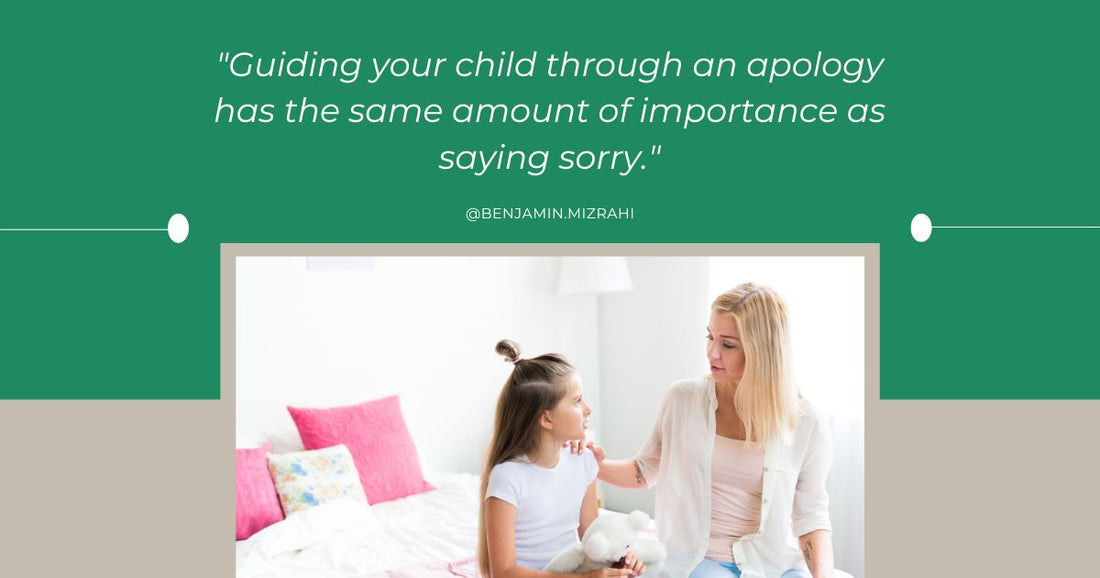
Don't Make Your Child Say "I'm Sorry" - What to Do Instead
Share
Something to remember is you should never force an apology from your child. By telling your child “Say you’re sorry,” there is no explanation for your child as to why their actions could have hurt someone. Or what they can do to change the way they acted.
This type of “sorry,” in particular when, it’s said with no feeling or a lack of sincerity, will stay with kids into their adult life.
Parents often urge children to immediately apologize. And although that is not out of bad intentions, it can be counterproductive. Other children see a lack of authenticity, and a child forced to apologize is learning to feign remorse.
What to do instead?
1) Modeling. If you are one to say “sorry” when you err, they will mimic you. Trust me on this one.
2) Pause. That’s right. Give kids a moment to volunteer a genuine response to a situation before you jump in two guns ablazin’. You may well discover that your children do say they are sorry, if given a moment to compose themselves.
3) Focus on the future: Instead of forcing them to say sorry about the past, which they can’t change, put the focus on their commitment to do something differently in the future. “Can you let your friend know that you won’t take his bike without asking again.”
4) Ask your child “what should happen now?” If they broke a neighbor’s window playing ball, letting the child think for themselves of how to right the situation helps build empathy, internalizes the lesson, and generates positive feelings about rectifying the situation. Replacing the window with their allowance and writing a letter stating it was an accident and promising to play in the park in the future feels restorative when they come up with the idea.
Coach Benjamin Mizrahi. Educator. Learning Specialist. Family Coach. Father. Husband.
More articles on www.MrMizrahi.blog
